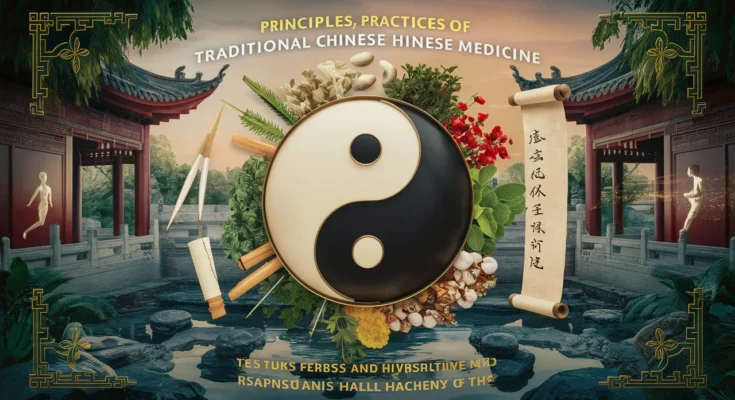Table of Contents
People have practiced Traditional Chinese Medicine (TCM) in China for thousands of years as a holistic healthcare system. Rooted in ancient philosophy, TCM encompasses a range of practices, including acupuncture, herbal medicine, massage (Tui Na), exercise (Qi Gong), and dietary therapy. Unlike Western medicine, which often focuses on treating symptoms, TCM aims to restore balance and harmony within the body to promote overall health and well-being.
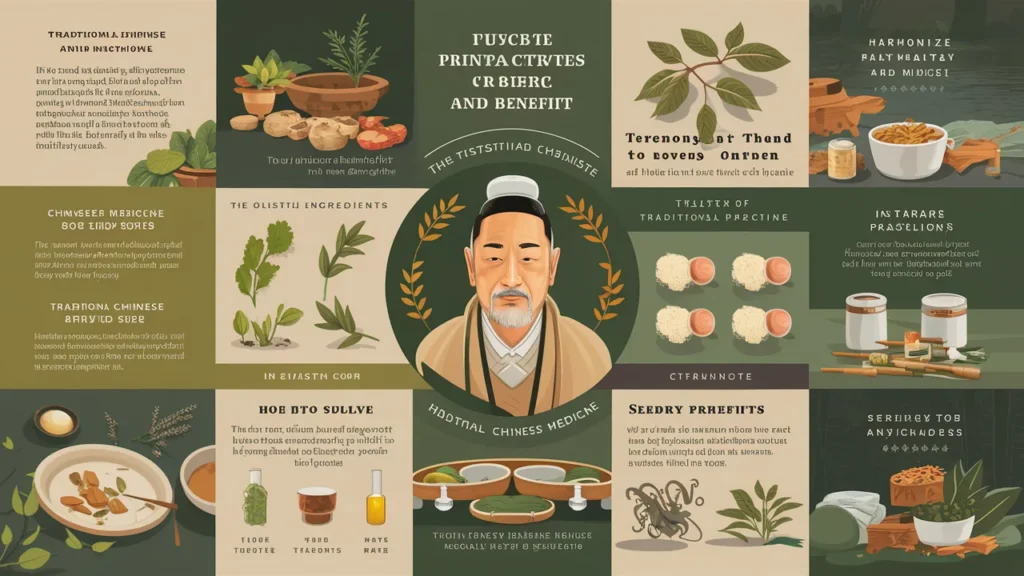
Core Principles of Traditional Acupuncture
At the heart of TCM are several fundamental principles that guide its practice and understanding of health and disease:
- Yin and Yang: The concept of Yin and Yang represents the dualistic nature of all things in the universe. In Traditional Chinese Medicine, people associate Yin with qualities such as cold, darkness, and stillness, while they link Yang to heat, light, and activity. They view health as a state of balance between Yin and Yang.
- Qi (Vital Energy): Qi is the vital life force that flows through the body.People believe that Qi travels along pathways called meridians. When Qi is balanced and flowing freely, the body stays healthy.. Blockages or imbalances in Qi can lead to illness.
- Traditional Chinese MedicineThe Five Elements: TCM theory includes the Five Elements—Wood, Fire, Earth, Metal, and Water.Each element is associated with specific organs and bodily functions. These relationships and their balance influence a person’s health.
- Traditional Chinese MedicineZang-Fu Theory: This theory categorizes the body’s organs into Yin (Zang) and Yang (Fu) organs, each with specific functions and relationships. For example, people associate the heart (a Zang organ) with the mind and emotions, while they relate the stomach (a Fu organ) to digestion.
Practices of Traditional Moxibustion
- Acupuncture: Acupuncture involves inserting thin needles into specific points on the body to regulate the flow of Qi. Practitioners use this practice to treat various conditions, including pain, digestive issues, and stress.
- Herbal Medicine: TCM utilizes a vast array of herbs to create customized treatments tailored to an individual’s unique constitution and condition. Commonly used herbs include ginseng, ginger, and licorice.
- Tui Na (Massage Therapy): Tui Na is a form of therapeutic massage that uses rhythmic compression techniques along the body’s meridians. It helps to balance Qi and alleviate pain.
- Qi Gong: Qi Gong is a mind-body practice that combines gentle movements, meditation, and controlled breathing to enhance the flow of Qi and improve overall health.
- Dietary Therapy: TCM dietary therapy focuses on consuming foods that harmonize with an individual’s constitution and the seasons. It emphasizes the importance of balance in flavors and properties, such as hot, cold, sweet, sour, and bitter.
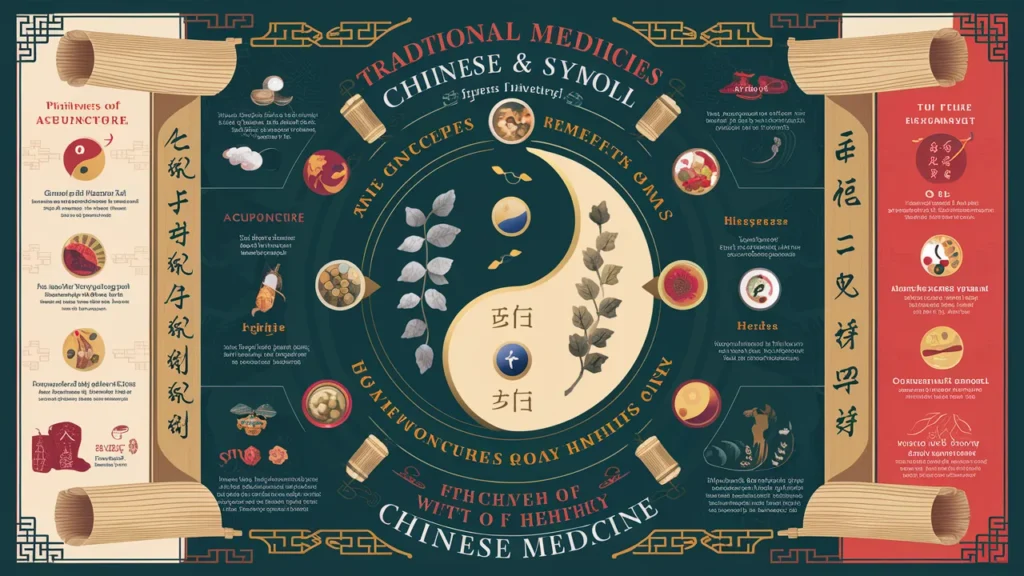
Benefits of Traditional Astragalus
Traditional Chinese Medicine offers numerous benefits for those seeking alternative or complementary healthcare approaches:
- Holistic Approach: TCM treats the whole person, addressing physical, emotional, and spiritual aspects of health. This holistic approach can lead to a more comprehensive understanding of one’s health and well-being.
- Personalized Treatment: TCM practitioners tailor treatments to the individual’s unique needs and conditions, providing personalized care that can be more effective than one-size-fits-all approaches.
- Preventative Care: TCM emphasizes the prevention of illness through lifestyle practices, such as balanced diet, regular exercise, and stress management, helping individuals maintain health and prevent disease.
- People have shown that TCM effectively manages chronic conditions such as arthritis, chronic pain, digestive issues, and stress-related disorders. It provides alternative solutions when conventional treatments are limited or cause undesirable side effects.
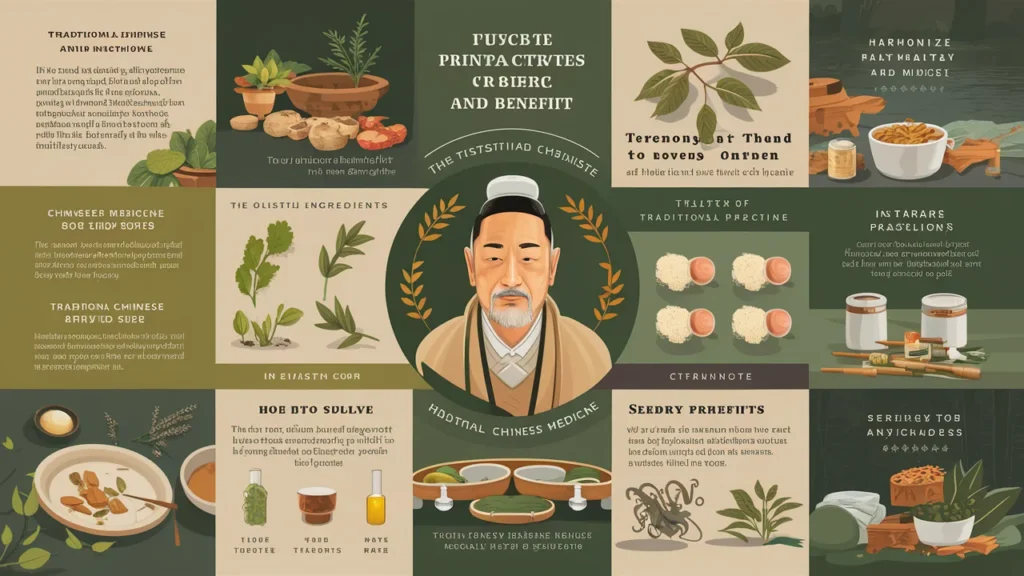
Applications of Traditional in ModernUnderstanding Oriental Medicine Healthcare
- Hospitals and clinics worldwide are increasingly integrating TCM with Western medicine.This integrative approach can enhance patient outcomes by combining the strengths of both medical systems.
- Pain Management: Acupuncture, in particular, has gained recognition for its efficacy in managing chronic pain, migraines, and postoperative pain, offering a non-pharmaceutical alternative for pain relief.
- TCM practices, such as acupuncture and Qi Gong, treat mental health conditions like anxiety, depression, and insomnia by promoting relaxation and balance within the body.
- Women’s Health: TCM offers specialized treatments for women’s health issues, such as menstrual irregularities, menopause symptoms, and fertility support, providing natural options for hormonal balance and reproductive health.
- Gastrointestinal Health: Herbal medicine and dietary therapy in TCM are often used to address digestive disorders, such as irritable bowel syndrome (IBS), acid reflux, and chronic constipation, by restoring digestive harmony.
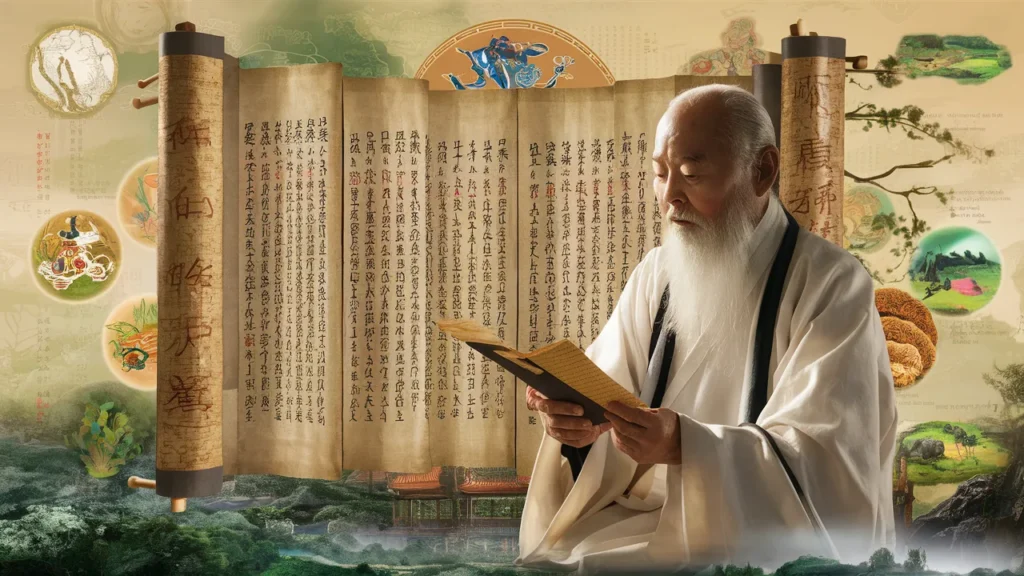
Conclusion: Embracing Traditional Chinese Medicine for Optimal Health
Traditional Chinese Medicine presents a rich, holistic approach to health and wellness that has stood the test of time. Its principles of balance and harmony, along with its diverse practices, offer valuable tools for preventing and treating a wide range of health conditions. Whether used as a primary treatment or in conjunction with Western medicine, TCM help individuals achieve and maintain optimal health through natural and personalized care. As more people worldwide recognize the benefits of TCM, its integration into modern healthcare continues to grow, providing a more comprehensive and balanced approach to health and healing.
